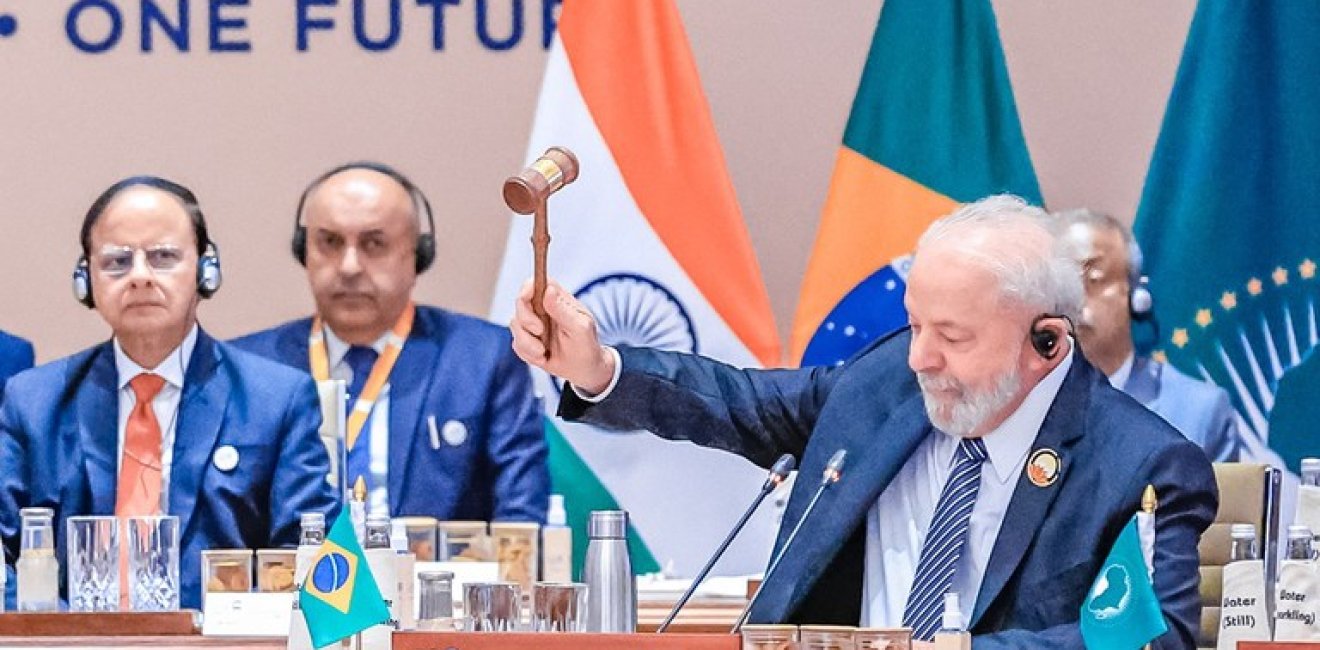As one of the standard-bearers of what is now called the “Global South,” Brazil favors placing particular emphasis on the social dimension – combating poverty and reducing social and economic inequalities – of sustainable development.
In a way, Brazil receiving the gavel to chair the G20 at this particular moment was a stroke of luck, considering the group’s established practice of rotating presidencies among its members. Therefore, it was only fitting that the upcoming G20 chairmanship would overlap with Brazil’s much-awaited comeback to the international stage after years of self-inflicted international isolation and retrenchment. The next G20 host will, in all likelihood, showcase a confident, forward-looking, and upbeat Brazil, eager to recover its rightful diplomatic credentials and actively engage with a world also keen on engaging with it.
Unsurprisingly, the priorities set out by the Brazilian presidency are aligned with the administration’s vision, one that still echoes President Lula’s victorious 2022 presidential campaign: to the traditional banner of fighting hunger, poverty, and social injustice, one would add the promotion of sustainable development as a requirement of our times. The view from Brasilia does not decouple the fight against it from the integral vision underpinning the notion of sustainable development, that is, providing for people experiencing poverty and the vulnerable while protecting the environment – and vice-versa. This is what Brazil wishes to bring to the G20’s table.
Brazil takes the reins of the G20 while greater instability brews at the heart of the international system. Brazil counts among those who see the grouping as a work in progress rather than another ossified plurilateral mechanism. The group’s built-in flexibility is one of the elements that help it strike an optimal balance between effectiveness and representativeness as it establishes itself as a valuable tool of global governance. As such, it would not be unimaginable that in the future, Brazil entertains the idea of the group taking on a more political role – that is, a “political G20” of sorts offering a broader platform for deliberation on the pressing issues of the international agenda – especially if the already relentless crisis of multilateralism endures any further.
However, as far as 2024 is concerned, Brasilia would prefer that the G20 stuck to its original mandate of enhancing macroeconomic coordination and helping spur economic growth and development among its members. It must be said that, as one of the standard-bearers of what is now called the “Global South,” Brazil favors placing particular emphasis on the social dimension – combating poverty and reducing social and economic inequalities – of sustainable development. The past G20 summits were captured by the polarization sparked by the war in Ukraine, no doubt one of today’s gravest crises, but one that should be sorted out primarily in the adequate forum – the United Nations. As with its predecessors, Brazil picks up the G20 torch with a pragmatic, results-oriented approach, committed to ensuring that its presidency’s priorities remain effectively priorities until the Rio de Janeiro summit in November 2024.









